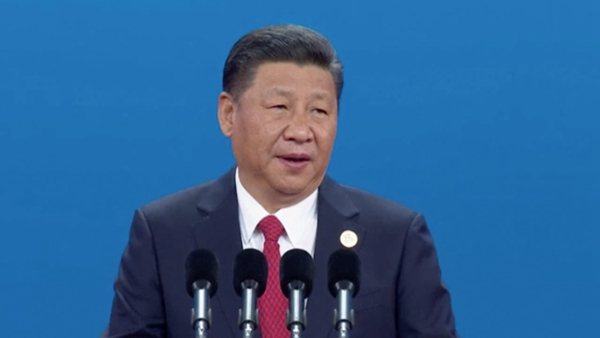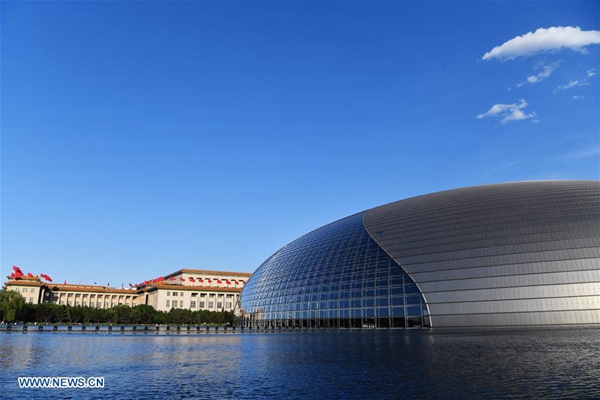Chinese president inaugurates Belt and Road forum
|
|
| Chinese President Xi Jinping is delivering a keynote speech at the opening ceremony of the Belt and Road Forum for International Cooperation on Sunday morning. [Photo/CGTN] |
Chinese President Xi Jinping on Sunday said the Belt and Road Initiative is “a project of the century” that will benefit people across the world.
Xi made the remarks when delivering a keynote speech at the opening ceremony of the two-day Belt and Road Forum for International Cooperation.
Named after the historic Silk Road, the Belt and Road Initiative was proposed by Xi in 2013 to chart out new territories for international cooperation.
“Spanning thousands of miles and years, the ancient silk routes embody the spirit of peace and cooperation, openness and inclusiveness, mutual learning and mutual benefit,” Xi told an audience of more than 1,500 from across the globe.
“The Silk Road spirit has become a great heritage of human civilization,” he said.
A total of 29 foreign heads of state and government leaders attended the forum, including Russian President Vladimir Putin.
Other delegates include officials, entrepreneurs, financiers and journalists from over 130 countries, and representatives of key international organizations, such as UN Secretary-General Antonio Guterres, World Bank President Jim Yong Kim, and Managing Director of the International Monetary Fund Christine Lagarde.
The United States sent a delegation led by Matt Pottinger, special assistant to the president and senior director for Asia at the National Security Council.
By all means, the forum, which also features a round-table summit of global leaders on Monday, is one of the premium gatherings in today’s world, and the most prestigious international assembly China has ever inaugurated.
At the center of its focus is Xi’s grand plan to better combine the rapidly expanding Chinese economy with the development of Asia, Europe and Africa.
Now a catchphrase both domestically and abroad, the Belt and Road Initiative is essentially a new inclusive platform on which countries in Eurasia and beyond can strengthen economic and cultural cooperation to achieve common prosperity.
By linking countries and regions that account for about 60 percent of the world’s population and 30 percent of global GDP, the initiative is a perfect example of China offering its own wisdom and solutions to global governance, said Wang Yiwei, a professor at the School of International Relations at Renmin University of China.
“It features inclusive and sustainable growth and takes into account development needs of different countries and regions for common prosperity,” he said.

